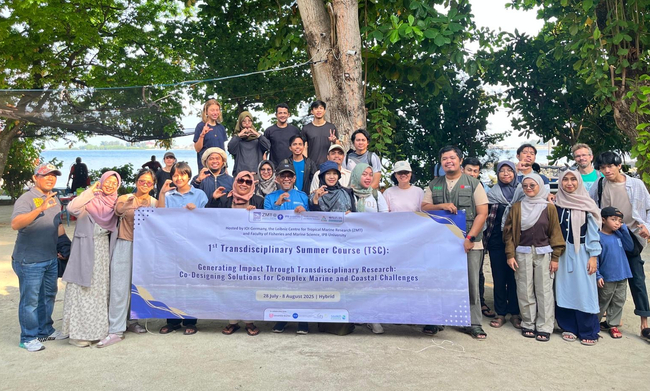Shaping marine futures: Successful summer course on transdisciplinarity
This summer, ZMT, IPB University in Indonesia, the International Ocean Institute (IOI), the University of Bremen and other partners jointly organised an international summer course on transdisciplinary research at IPB in Indonesia for the first time. Funded by DAAD ASEAN and also supported by LFN Sustain and Future Earth Coast, the hybrid programme combined lectures on the IPB campus with online sessions via the ZMT Academy.
A total of 89 people (24 on site, 65 online) from various academic, political and social fields took part. They came from countries such as Indonesia, Germany, Afghanistan, Bangladesh, the Netherlands, Belgium, Guatemala, the United Kingdom and Singapore.
The summer course, entitled ‘Generating Impact Through Transdisciplinary Research: Co-Designing Solutions for Complex Marine and Coastal Challenges,’ aimed to deepen participants' understanding of transdisciplinary approaches to addressing marine and coastal challenges. Theory and practice were linked, including through excursions to Pramuka Island and the fishing community of Cilincing.
The main objectives were to acquire practical skills in co-designing solutions, promoting international cooperation and strengthening impact-oriented sustainability research. An international team of lecturers led the programme, which combined lectures, tutorials and interactive exercises on topics such as sustainability science, impact pathways, theories of change and stakeholder engagement.
The strong participation and cooperative spirit of the participants characterise a successful first edition and underline the growing importance of transdisciplinary research in addressing complex marine and coastal issues.





